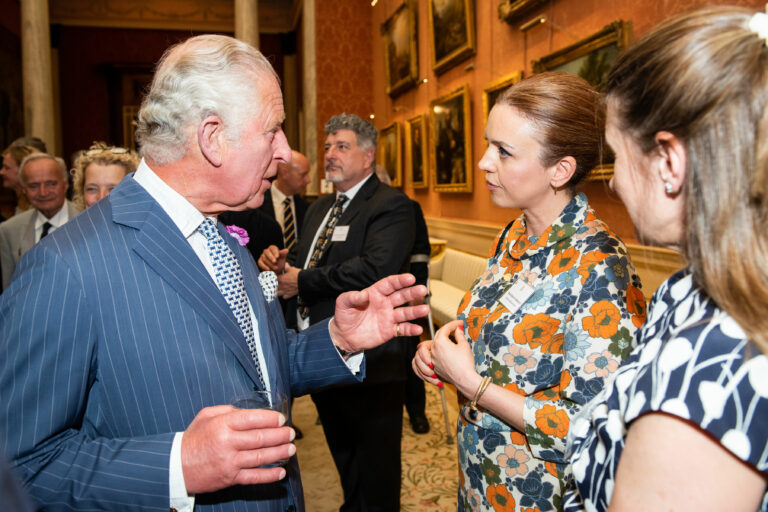Equity investment in smaller businesses surges to £14bn says British Business Bank

There was a surge in equity investment into smaller UK businesses last year, according to the British Business Bank’s Small Business Finance Markets 2021/22 report, published today.
A total of £14 billion was invested over the first three quarters of 2021, a 130 per cent increase on the £6.1 billion invested over the first three quarters of 2020. With one quarter still to go, investment has already exceeded the £8.7 billion invested in the whole of 2020. At the same time, the report shows that bank lending has returned to close to pre-pandemic levels, with 2021 lending down 45 per cent from 2020, driven by lower drawdowns of government-supported loans.
The report suggests there could be continued economic recovery throughout 2022, with strong demand expected for investment to fuel business growth. Although 2022 may still provide a challenging environment for some businesses, many others report that they are seeking to pivot towards growth, improve productivity and transition to a net zero economy.
Catherine Lewis La Torre, CEO, British Business Bank, said: “As smaller businesses look to recovery and growth following a challenging economic period, finance will continue to play a crucial role. With our mission to drive sustainable growth and prosperity across the UK, and to enable the transition to a net zero economy, the British Business Bank will continue to support the country’s smaller businesses by improving access and options to secure external finance.”
Small Business Minister Paul Scully said: “This report shows a massive 130 per cent increase in equity investment into smaller UK businesses, which is a hugely positive step forward in our recovery from the pandemic.
“However there is clearly more to do to get ethnic minority and women-led businesses on to a level playing field when it comes to accessing finance. The Government will continue to work with the sector, including through Start Up Loans and the Rose Review of female entrepreneurship, to ensure everyone has the tools they need to succeed.”
The data shows that both demand and supply-side factors are contributing to geographic imbalances in finance flows. Long-run data covering 2019 to mid-2021 show London businesses remain more open to using finance, with 37 per cent happy to use finance to grow compared to 29 per cent -32 per cent of smaller businesses in most other parts of the UK.
While the UK hosts a large number of rapidly growing businesses, external finance remains highly concentrated in the capital compared to other regions. London firms attracted 70 per cent of 2021 Q1-Q3 investment value. This is partly due to the geographic location of the equity investors themselves, which are predominantly based in the capital. This was also evidenced in the Bank’s first Regions and Nations Tracker, published in October 2021, which showed 82 per cent of equity investment stakes in the UK are between investors and smaller businesses located within two hours of each other.
Despite these inequalities, the British Business Bank’s regional funds programmes continue their success in delivering regional access to finance, with the Northern Powerhouse Investment Fund recently surpassing £300 million direct investment, double that of the Midlands Engine Investment Fund which reached its £150m investment milestone.
In the recent Spending Review, the British Business Bank was provided with additional £1.6 billion for new regional funds and a further £150 million for regional angel investment. In 2021, the Bank’s core programmes are estimated to have deployed more than £979 million of finance to businesses outside of London.
In 2021, almost half of smaller businesses viewed reducing their carbon emissions or environmental impact to be a priority for their business and one in five would use external finance to help transition their business to net zero. Just over one in 10 of smaller businesses have already used external finance to support net zero actions.
In contrast, almost three quarters of smaller businesses viewed maintaining or increasing sales to be a high priority, and almost two-fifths would be happy to use external finance to grow their business.
Research suggests equity investors are increasingly considering environmental factors in investment decisions. A survey of UK VC fund managers conducted by the British Business Bank indicated that the vast majority (83 per cent) are now taking into account environmental factors within investment decision making, and more than half see ESG factors as a significant part of their investment decision making process. This has in turn led to an increase in clean tech investment in the market.
In 2021, the British Business Bank introduced a new climate change objective that commits it to supporting the UK’s transition to a net zero economy, alongside joining relevant initiatives such as the Race to Zero campaign and Business Ambition 1.5C.
The report also indicates that Ethnic Minority-led businesses are more open to using finance and more ambitious for business growth but access to finance remains an issue. Half of Ethnic Minority-led businesses are open to using finance for growth compared to a third (32%) of White-led businesses. More Ethnic Minority-led businesses (64 per cent) have ambitions for significant growth compared to 39 per cent White-led businesses.
Despite this, Ethnic Minority-led businesses are more likely to be discouraged from applying for external finance and having their application turned down, leading to negative impacts on their business. Although rejection rates have declined in recent quarters, most likely reflecting the impact of government-backed loan schemes, they remain significantly above those for White-led firms, with data showing that 18 per cent of Ethnic Minority-led businesses were turned down for finance between Q3 2020 and Q2 2021, compared to only 10 per cent of their White counterparts.
As a consequence, Ethnic Minority-led firms are around twice as likely to cite access to finance as a barrier than White-led businesses. Additionally 56 per cent of Ethnic Minority-led businesses currently using finance agreed they thought it would be difficult for them to obtain finance again, compared to 42 per cent of White-led businesses.
Amongst female-led businesses, appetite for external finance has significantly increased to 31 per cent in Q2 2020-Q2 2021, but remains lower than for male-led businesses at 39 per cent. Female-led businesses are also more likely than male-led businesses to be discouraged from applying for finance, citing issues such as uncertainty over where to find finance and concern over the application process being too burdensome. Despite this, only 12 per cent of female-led businesses view access to finance as a barrier, broadly in line with male-led businesses.
The British Business Bank runs the Start Up Loans programme to help entrepreneurs from under-represented backgrounds start up and scale a business. Around 36,000 (40 per cent) of loans have gone to female entrepreneurs and around 18,000 (21 per cent) to entrepreneurs who belong to an Ethnic Minority group (excluding white minorities): almost 8,000 (nine per cent) have gone to female entrepreneurs from Ethnic Minority backgrounds.














